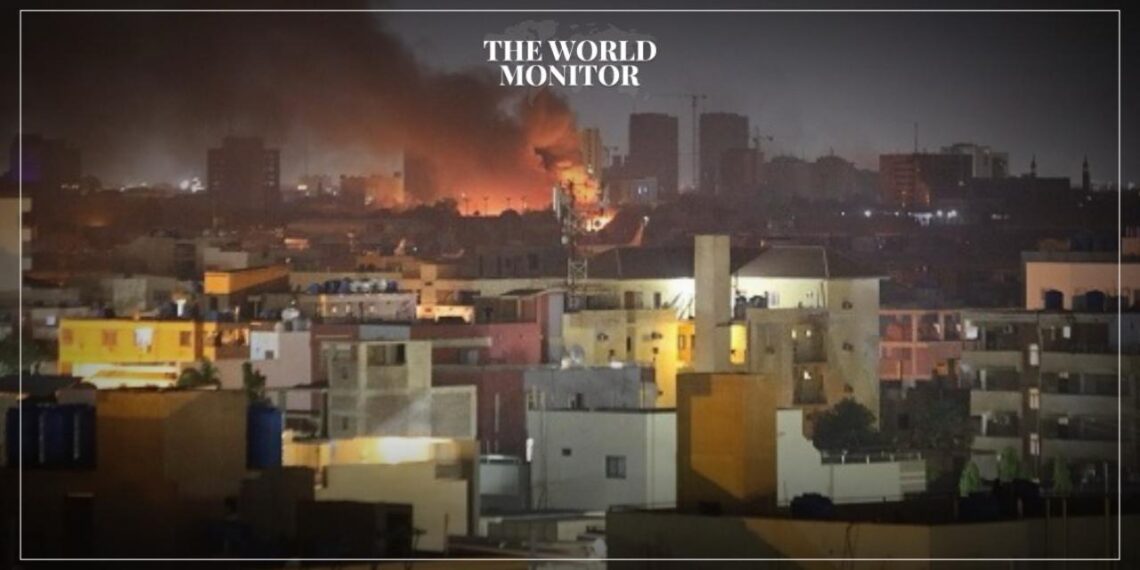Ammar Al-Sadiq, a member of the external advisory council to the commander of the Rapid Support Forces (RSF), Mohammed Hamdan Dagalo (Hemedti), denied the RSF’s bombardment of residential areas, stating that the forces do not possess heavy weaponry to carry out such actions, instead laying the blame on the army forces, which he also accused of recruiting children while refuting the same accusation against Hemedti’s forces.
The United Nations High Commissioner for Human Rights, Volker Turk, mentioned in a statement on Friday that his office received reports indicating the recruitment of hundreds of children by the RSF in the Darfur region, stating that the Sudanese army had also engaged in similar practices in the eastern part of the country. Turk warned that these actions “constitute a blatant violation of the Optional Protocol to the Convention on the Rights of the Child on the involvement of children in armed conflict” and expressed real concerns that arming civilians in Sudan could lead to “the formation of unregulated armed civilian militias, increasing the likelihood of Sudan sliding into a prolonged civil war.”
However, Al-Sadiq, in an exclusive statement to the Arab World News Agency (AWP), rejected Turk’s accusations against the RSF, asserting that they had denied these claims on multiple occasions. He added, “We have found numerous reports, evidence, and video clips showing a large number of children and youths involved in the popular mobilization camps called for by the Sudanese army commander Abdel Fattah al-Burhan and by the army and leaders of the Islamic movement.”
Al-Sadiq also denied the RSF’s use of heavy weapons in civilian areas, stating, “In RSF-controlled areas… the indiscriminate aerial bombardment conducted by the armed forces has resulted in many casualties, including women and children, with a significant number of non-combatant fatalities.” He continued, “The artillery shelling from Karari to neighborhoods in West Omdurman, the aerial bombings in El Daein, Nyala, Al Jazirah, and South Khartoum, have left extensive damage, especially with the use of wide-impact and prohibited weapons, even affecting hospitals.”
Al-Sadiq further explained that the RSF does not possess heavy weapons but does have anti-aircraft capabilities primarily aimed at drones and aircraft, focusing on army concentrations due to the RSF’s siege tactics on known and limited army locations. He emphasized that the army’s response is often targeted at residential areas and neighborhoods to strike at the dispersed RSF forces, unfortunately resulting in substantial civilian casualties and damage to civilian infrastructure.
Since the outbreak of conflict in Sudan between the army and the RSF in mid-April, both sides have exchanged accusations regarding the targeting of residential areas and the resulting casualties among unarmed citizens, including women and children.
Thousands of Victims in Ongoing Conflict
Turk stated in his statement that at least 14,600 people have been killed and 26,000 others injured due to the conflict in Sudan over the past ten months. He warned that the lives of Sudanese have turned into what he described as an ongoing nightmare, suggesting that the actual numbers of casualties are likely much higher.
The statement noted that the war in Sudan has seen the use of wide-impact weapons even in densely populated urban areas, launched from fighter jets, drones, and tanks.
When asked about the potential of an international investigation committee uncovering the truth about the war, Al-Sadiq said, “Certainly… the RSF leadership has always invited the international community and organizations to investigate and has welcomed any officials from these organizations to conduct on-the-ground investigations.”
However, he mentioned that obstacles placed by officials in Port Sudan, army leaders, and their refusal to facilitate the investigators’ access, whether through visas or permissions, have hindered the investigation process, leading some organizations to suspend their operations in Sudan. He argued that these impediments have resulted in the absence of accurate information and investigations, allowing for the spread of numerous falsehoods and claims by army leaders.






